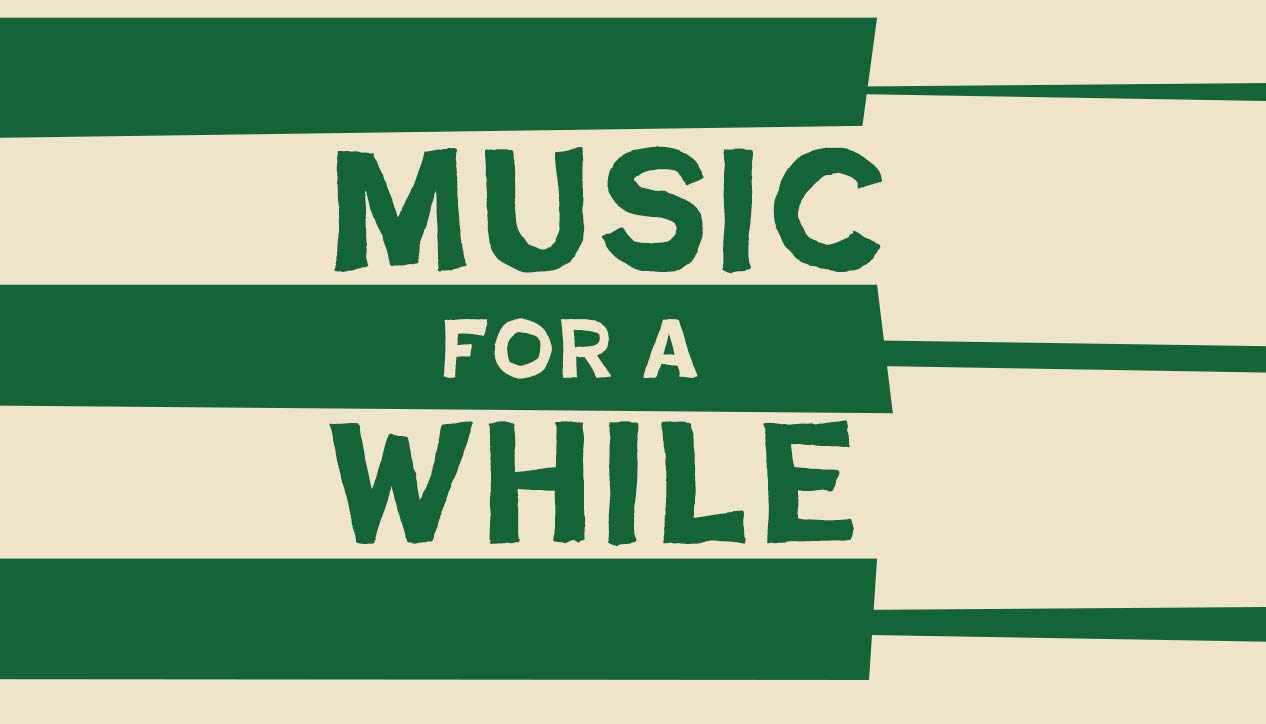Music For A While
Monday July 15th, 2024 with David Cavlovic
Liebeslieder Waltzes that are not gloomy
Ukrainian born cabaret singer Piotr Leshchenko was easily the most popular male vocalist in Eastern Europe, nowhere more so than in the Soviet Union. There was one problem though: as an anti-Bolshevist he fled the country and lived in exile. Nevertheless, Leshchenko's recordings were smuggled into the USSR and radio broadcasts were picked up from neighbouring countries in spite of the official ban.
Leshchenko's Russian version of the Hungarian song Szomorú Vasárnap (Gloomy Sunday) was the most popular version of the song outside of Hungary. The song, composed by Rezső Seress, is quite brilliant and dramatic for a popular song of its time. Maybe a little too dramatic. There are legions of stories of people listening to it becoming so depressed, most often because of love-loss, they committed suicide. And so, the song garnered the nickname, even in North America, as The Hungarian Suicide Song. Some countries even banned its playing over the radio because of its reputation.
Seress achieved a modicum of fame and fortune with the song. But after the Second World War, and, being Jewish, barely surviving the Holocaust, Seress fell into disfavour during the Communist era. He fell into poverty, depression---and he committed suicide...
On a bit of a brighter note, and somewhat of a non sequitur, the Ukrainian song Karije Otschi (Auburn eyes) was a particular favourite of my maternal Baba.
| Johannes Brahms: Liebeslieder-Walzer, Op. 52 Elsie Morison, soprano; Marjorie Thomas, contralto; Richard Lewis, tenor; Donald Bell, baritone; Vitya Vronsky, piano; Victor Babin, piano - Brahms. Un Requiem allemand. Œuvres chorales - EMI Classics |
| I. Rede, Mädchen
II. Am Gesteine rauscht die Flut III. O die Frauen IV. Wie des Abends schöne Röte V. Die grüne Hopfenranke VI. Ein kleiner, hübscher Vogel VII. Wohl schön bewandt war es VIII. Wenn so lind dein Auge mir IX. Am Donaustrande X. O wie sanft die Quelle XI. Nein, es ist nicht auszukommen XII. Schlosser auf, und mache Schlösser XIII. Vögelein durchrauscht die Luft XIV. Sieh, wie ist die Welle klar XV. Nachtigall, sie singt so schön XVI. Ein dunkeler Schacht ist Liebe XVII. Nicht wandle, mein Licht XVIII. Es bebet das Gesträuche |
| Sergei Prokofiev: Piano Sonata No. 6 in A Major, Op. 82 Florian Noack, piano - prokofiev_florian noack. visions fugitives, contes de la veille grand-mère, 4 ètudes pour piano, sonate no. 6 - La Dolce Volta |
| I. Allegro moderato
II. Allegretto III. Tempo di valzer lentissimo IV. Vivace |
| Fanny Gordon: U Samowara (At the samovar) Piotr Leshchenko, vocal; Orchestra Max Koenigsberg - Pjotr Leshchenko 1931-37 - Oriente Musik |
| Rezső Seress: Szomorú Vasárnap (Gloomy Sunday) (sung in Russian) Piotr Leshchenko, vocal; Orchestra Max Koenigsberg - Pjotr Leshchenko 1931-37 - Oriente Musik |
| Traditional Ukrainian: Karije Otschi (Auburn eyes) Piotr Leshchenko, vocal; Orchestra Max Koenigsberg - Pjotr Leshchenko 1931-37 - Oriente Musik |
| Mark Iosifovich Maryanovskiy: Vino Ljubvi (Wine of love) Piotr Leshchenko, vocal; Orchestra Frank Fox - Pjotr Leshchenko 1931-37 - Oriente Musik |
| Boris Belototsky: Andryusha Piotr Leshchenko, vocal; Orchestra Max Koenigsberg - Pjotr Leshchenko 1931-37 - Oriente Musik |
| Alexander Sukhanov: Osennij Mirasch (Autumn’s phantom) Piotr Leshchenko, vocal; Orchestra Nikolai Tschereschni - Pjotr Leshchenko 1931-37 - Oriente Musik |
| George Korologos: Aljiescha Piotr Leshchenko, vocal; Orchestra Max Koenigsberg - Pjotr Leshchenko 1931-37 - Oriente Musik |


 Subscribe to Music For A While
Subscribe to Music For A While